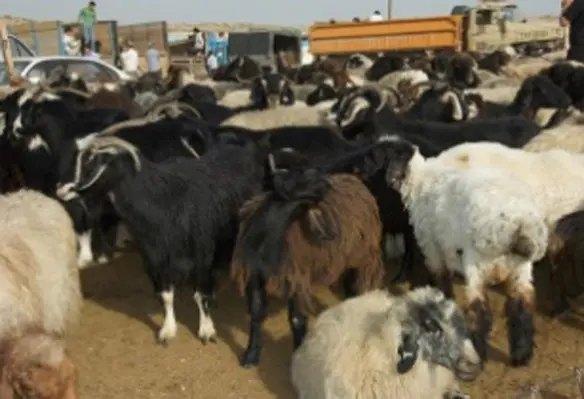FAO has organised a quadrilateral meeting on the control of transboundary animal diseases (TADs) in Tehran from 28-29 November 2017, where the governments of Afghanistan, Iran, Pakistan and Tajikistan will discuss areas of mutual concern and improved collaboration to prevent those diseases
Livestock play an important role in countries of Central and South Asia in relation to boosting nutrition and improving livelihoods, particlarly those of small holders and their families.
Outbreaks of animal diseases like foot-and-mouth disease (FMD) and peste des petits ruminants (PPR) are a constant threat to both better nutrition and farmers’ incomes. As these diseases can spread rapidly and across national borders, the governments in the region have apprehended the need for greater cross-border collaboration to prevent and control TADs.
The quadrilateral meeting is expected to lead to the development of a mutually beneficial regional approach toward TADs control. The signing of a multilateral MoU agreement between the veterinary directorates of Afghanistan, Iran, Pakistan and Tajikistan is expected to strengthen the collaboration and coordination on control of TADs.
In addition, the international community is expected to benefit from transparent disease reporting and a better understanding of the risks posed by FMD and PPR.
The meeting is supported by the government of Japan, through the FAO project in Afghanistan in “Building resilience and self-reliance of livestock keepers by improving control of foot-and-mouth disease (FMD) and other Transboundary Animal Diseases (TADs).” The project, launched in 2014, aims at assisting herders to enhance the health of their livestock. It also supports annual bilateral meetings with the neighboring countries to address common issues such as the impact of animal movements and the related risks of diseases spreading across borders.
Livestock-dependent populations in border areas include nomadic herders who move their stock along traditional routes between winter and summer pastures. The project aims to assist these groups in prevention and control of animal diseases. In Afghanistan alone, the most recent estimate of the nation-wide number of indigenous sheep, goats and cattle was in excess of 10mn.




